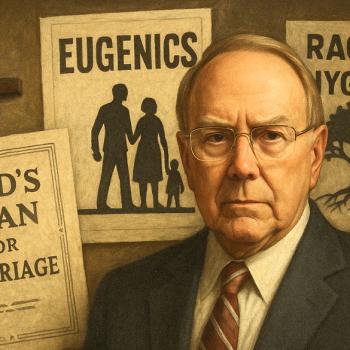APRIL
Sharing, whether out of neighborliness or by contract, requires all sides to be magnanimous, generous and deferential. Or, in other words, the arrangement would only be worth the potential savings if nobody was a jerk — if nobody was the sort of advantage-seeking jackwagon who never refills the gas can or who tries to get others to pay more than a fair share of maintenance costs.
If people insist on being jerks, then sharing can’t work. And we’re swimming upstream here, because sharing, by its very nature, tends to reward jerks who try to exploit the system. …
You’ve experienced this. More than once. You’re at a restaurant with a large party of friends or co-workers or castmembers or — riskiest of all — people from church, and everybody is on one tab. The bill gets passed around the table and the money gets piled up in the middle and you wind up $20 short — not to mention the tip. “Who didn’t put in?” No one says anything. Everyone insists they paid more than enough for their share, with plenty of extra for the tip, but you’re $20 short, so somebody is lying. More than one somebody, probably. But since no one fesses up, you end up tossing in way more than you should have had to and those $5.99 nachos wind up costing you $40.
That’s the sort of experience that makes it seem easier and even cheaper to just buy your own lawnmower.
“Mike Warnke and Marriage Equality“
Mike Warnke controlled most of the market selling scary stories about a conspiracy of satanists, but there’s a lot more competition in the marketplace among the fraudsters selling lies about the Big Gay Menace. The audience eagerly buying those lies, however, is much the same. And that audience is still seeking the same things — excitement, simplicity, and pure, uncut indignation.
Lately, though, sales of this particular lie have been fading. The dropoff hasn’t been as abrupt and precipitous as what happened with Warnke. His customer-base dried up almost overnight once Cornerstone’s reporting hit newsstands. But while there hasn’t been one single and thorough exposé of the lies being sold about the Big Gay Menace, those lies are still being exposed little by little, bit by bit, whittling down the market for them to a dwindling base of hardcore self-righteousness addicts.
Vermont adopted civil unions and the sky did not fall. Over the following decade other states followed suit and none of the monstrous evils that the fraudsters insisted would happen have come to pass. And on a more intimate, more personal level, more and more of the people in that potential market for these scary stories have gotten to know gay, lesbian, bisexual and transgendered people — gotten to know them as people rather than as some amorphous Other — and so have come to realize that they’re not the monsters the scary stories make them out to be.
The lies are becoming harder and harder to defend, harder and harder to sell. And without those lies, it becomes harder and harder to explain why one group of people should be denied the same legal rights and protections enjoyed by the rest of us.
MAY
“My hope is built on nothing less“
Now, it’s tragic and probably heretical that this is how the American evangelical community decides who is and who is not an acceptable and recognized member of the community. Wallis’ long demonstration of a passionate faith doesn’t count in this calculus. Nor does his personal testimony, his church membership or of his long track record as a Bible-soaked preacher of God’s Word. All that really matters is opposition to those two things: Abortion and homosexuality. All other ground is sinking sand, all other ground is sinking sand.
Meeting that two-part standard is both necessary and sufficient for anyone’s acceptance as One Of Us by American evangelicalism. We recently saw this demonstrated yet again in the brief surge of evangelical enthusiasm for Donald Trump’s candidacy for president. Trump is a relentlessly amoral and areligious person — and he’s also loony as all get out — but he had signaled his willingness to toe the line on abortion and homosexuality, and so he received the blessing of Franklin Graham and of Tony Perkins and other evangelical gatekeepers.
Because Jim Wallis complies with that same two-part standard he remains accepted as a member of the evangelical community. The same cannot be said for, say, Tony Jones or Jay Bakker or any of the other relatively younger evangelical leaders and writers who have, due to their full embrace of GLBT equality, come to be designated as “post-evangelical” …
These two pre-eminent issues — abortion and homosexuality — have become the crux of American evangelicalism (pun intended) in part due to the politicization of evangelicals over the past three decades, years in which evangelical Christians have come to be regarded, by both outsiders and insiders, as primarily a bloc of voters. A great deal of money was spent during those years to convince evangelicals to come to think of themselves in this way and that money has had its intended effect.
“An inescapable network of mutuality“
And but so my point here is that responsibility to meet the needs of those in need is never an either-or situation. This responsibility is never exclusive. Yes, “Let the churches do it.” The churches must do it. It’s part of their job. But not only the churches. And let the government do it. The government(s) must do it. It’s part of their job. But not only the government(s). If either of those actors were left to handle this alone, they would be forced to go beyond their capacity, their competence and their proper bounds.
None of which is saying anything new or innovative or anything other than what the majority of Christians have believed for centuries. That neither Franklin Graham nor Marvin Olasky understands this is troubling. That they fail to understand this and yet are still treated as influential and respected spokespeople on this subject is even more so.
JUNE
I do not think that the professor’s commendable inability to bring himself to maim and cruelly harm another human being reflects an insufficiency of holiness on his part. Nor do I think that this is how he perceives this lack of capacity for torture himself. He does not lament his having a conscience that forbids him to torture others. He does not view it as a moral failing on his part. He likely sees it, instead, as evidence of his fundamental humanity — evidence that he is a child of God created in the image of God.
And yet — despite what his gut, his brain, his heart and his conscience are telling him about torture — the professor is reluctantly convinced that God is capable of being the monster he cannot imagine allowing himself to become. And this places him in the unfortunate position of having to argue that this monstrosity is a function of God’s holiness
I do not think this word means what he thinks it means. I do not think this word can be made to mean what such an argument would require it to mean. I am fairly sure that if you construct a sentence using the word “holiness” in which the word “sadism” can be substituted for it without changing the meaning of the sentence, then you’re using it wrong.
If that is what this word means, then the heavenly hosts singing praises around the throne of God would have chosen a different word rather than accusing God of something as nasty and stomach-turning as holiness.
If “Holy, holy, holy” meant that God delights in that which causes our consciences to recoil — causes every fiber of our being, our gut, our intellect, our heart, our soul to scream out no, No, NO! — then those praises would be blasphemies. Then praise and blasphemy would be interchangeable.
“A bipartisan enemy of the people“
Credit scores are a protection racket. Your credit scores are not accurate. Your credit scores were not designed to be accurate. It’s not that the credit rating agencies deliberately insert errors into their scores, but rather that they calculate them with a deliberate disregard for accuracy. To calculate them accurately would undermine one of the primary revenue streams of the credit rating agencies’ business model. You’ve seen the ads, you know the jingles. Credit rating agencies make money by charging a monthly fee to “allow” consumers to do their job for them. Pay a monthly fee to each of the three credit rating agencies and you will be permitted to attempt to ensure the accuracy that they cannot be bothered to attempt to ensure themselves because, if they did, then they couldn’t get you to pay them each a monthly fee.
The racket is exactly that transparent. And please note that this isn’t something I am accusing them of, this is something they explain themselves, explicitly, hundreds of times a day on the radio, on television and in advertisements all over the Internet. If you don’t pay them, they will not guarantee the accuracy of the credit score on which your ability to borrow or to purchase — or perhaps even to earn a living — depends. “Nice credit score ya got there. Shame if anything happened to it.” That’s exactly what they’re saying, brazenly, in all those ads.
















